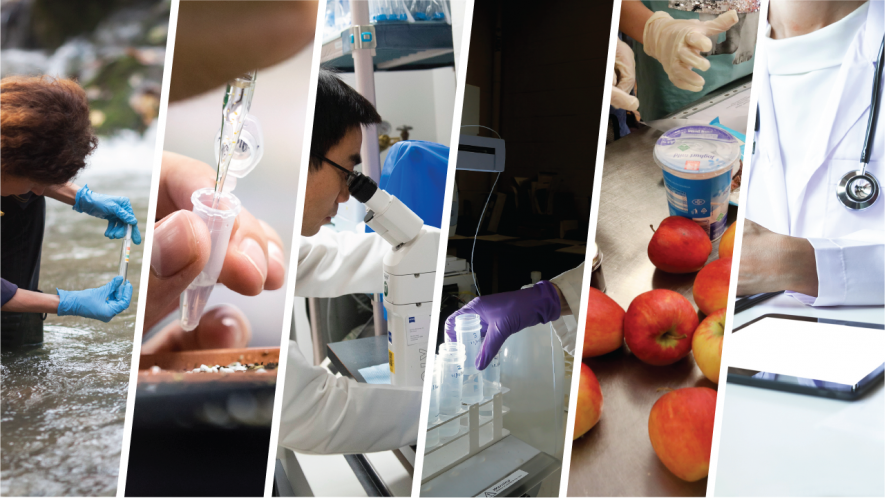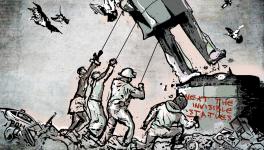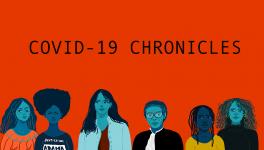What Does a Survey on Americans’ Perception of Scientists Reveal?

A large-scale survey by Pew Research Centre, a research organisation, has been conducted on American people to judge their perceptions about scientists. The survey was done among Americans asking them how much they believe in scientists from different fields—environment, health, nutrition, biomedical etc. The survey says that a majority of the respondents said they had faith in scientists; over 86% of the population said they had ‘fair faith’, an increase of 3% from a year ago. Three years ago, this level of confidence was only 76%.
On a positive note, the confidence of the respondents in scientists is higher than that on the military (82%) or public school principals (80%). It is even higher than the news media (47%) and elected officials (35%). More interesting is the fact that the level of confidence in scientists is influenced by political orientation, especially on issues like man-made climate change, scientists’ engagement in public policy debates.
In the case of Democrats, nine out of 10 said they trusted environmental scientists. But less than a half of the Republicans showed that kind of confidence. Cary Funk, a social scientist and lead author of the new study, observes—“We often see that public attitudes around climate, energy, and environmental issues are strongly correlated with party ideology, where other kinds of science issues are not. This is called “motivated reasoning”. The idea is that your partisan identity kind of trumps the role of knowledge in your beliefs.”
The Pew study found that people, by and large, accepted the conclusions of medicines, basic physics, organic chemistry, except climate change. Even if the same methods and philosophies are adopted in bringing about the results in climate science as in other fields, people’s political orientation shapes their acceptance or non-acceptance of facts. Of course, differences in acceptance of scientific outputs from other fields like genetically modified crops, also exist, but these differences are not strictly restricted to political affiliation that one identifies himself or herself with.
The big question is why this motivated cognition towards climate change? At a time when climate change has become the issue of greatest existential crisis of humanity, what leads to the perception of climate change as a mere environmental issue?
Many researchers point towards environmentalism and conservatism of the 20th century. Before the 1970s, American science had dominantly been the “production science”. Every new product used to be celebrated as a scientific achievement and the corporates also liked it. Then there was the rise of the environmentalism, which started to look at the harms of industrial era products like asbestos, DDT, CFC, nuclear waste, and the recent ones being greenhouse gases and plastics.
Environmentalism and conservatism took off at almost the same time, that is, during the 1970s. Eventually, conservatism could disempower environmentalism. According to Riley Dunlap, the emeritus sociologist at Oklahoma State University, the funders of the Republican Party were fighting the regulatory apparatus that had environmentally sensitive policies. Dunlap believes that this is the root why the Republicans deny climate science while embracing particle physics.
The Pew survey also sheds light on how people perceive the engagement of scientists in policy debates. It revealed that six out of every 10 people said scientists belong in public policy debates. The rest say that scientists should “focus on establishing sound scientific facts and stay out of public policy debates.” Also, it was found that 73% among the respondent Democrats believed that scientists should engage in public policy debates, while 43% of Republicans believed the same.
The survey also found that African Americans and Hispanics have more skepticism than the whites for health researchers. More than 70% of blacks take misconduct as a problem among health experts. Well, this perception is deeply buried into history—the Tuskegee syphilis experiment, wherein forced sterilisations and other atrocities by medical professionals came to light. African Americans still don’t receive equal preventive medical care. Black women are more likely to die during childbirth.
To raise the confidence of the African Americans in health services, biomedical research and services, could only be increased if implicit biases, stereotypes, racism could be addressed in future.
Get the latest reports & analysis with people's perspective on Protests, movements & deep analytical videos, discussions of the current affairs in your Telegram app. Subscribe to NewsClick's Telegram channel & get Real-Time updates on stories, as they get published on our website.

















